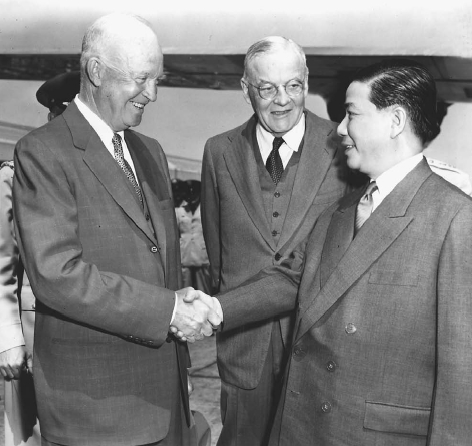On
September 2, 1945, shortly following the surrender of the Empire of Japan in
World War II, Ho Chi Minh issued the Proclamation of Independence for the
Democratic Republic of Vietnam. Ho was a leader in the Viet Minh independence
movement since the war and had previously lived in the US, the UK, France, the
Soviet Union and China. His proclamation begins by directly quoting from the US
Declaration of Independence and France’s Declaration of the Rights of Man and
Citizen:
All men are created equal;
they are endowed by their Creator with certain inalienable Rights; among these
are Life, Liberty, and the pursuit of Happiness.
This immortal statement was made in the Declaration of Independence of the United States of America in
1776. In a broader sense, this means: All the peoples on the earth are equal
from birth, all the peoples have a right to live, to be happy and free.
The Declaration of the Rights of Man and Citizen of the French Revolution made in 1791
also states: All men are born
free and with equal rights, and must always remain free and have equal rights.
Despite
this shared rhetoric, the French had only just regained control of their
Indochinese colony from the Japanese, and were not about to let Vietnam become
an independent state. What’s worse was that Ho Chi Minh was not trying to
establish a new capitalist republic, but rather a communist state, something
that western countries found unacceptable. The French authority immediately
took up the task of taking down this insurgency, backed with weapons from the
United States. Ho’s forces began to mobilize stronger and receive supplies from
the Soviet Union, and by the end of the forties a full scale war had broken
out. The French sent troops from all over their massive empire to try to quell
the rebellion, but after a decisive loss in 1954 at Dien Bien Phu they decided
to cut their losses and agree to meet to discuss peace terms.
The terms
were settled in Geneva, Switzerland, and stated that Vietnam would be split in
two; the Communists would gain control of the North, while the South would be a
republic that would be given the chance to decide a separate future. An
election was rigged up by the United States and the family of a man named Ngo
Dinh Diem. Diem became the first president of the Republic of Vietnam, and
future elections were canceled. The Eisenhower administration’s internal
polling suggested that the communists could have won about percent of the vote
in this election, and their main concern was keeping the communists out of
power – not creating a democracy.
Diem’s rise to power brought about resentment from the communists in the south,
who began to launch guerilla attacks under the name of the National Liberation
Front (NLF, or Viet Cong) on Republican targets. In response, Diem executed
anyone he could who was guilty of committing political violence, but it was
clear that he did not have the resources needed to fight the Viet Cong on his
own.
President Eisenhower shakes President Diem's Hand in 1954.
In response
to the growing restlessness in the Republic of Vietnam the United States under
President John F Kennedy began to send over military experts to advise the Army
of the Republic of Vietnam (ARVN). Whereas Eisenhower had sent only nine
hundred such advisors, Kennedy sent sixteen thousand. This was accompanied by
increased military activity in the Southern Vietnamese countryside, and ARVN
often came up short against the Viet Cong in battle. The Vietnamese military
high command was growing increasingly impatient with what they perceived as the
weakness for Ngo Dinh Diem, as was the administration of the United States.
Diem became increasingly difficult to work with, and he called for campaigns
that the US did not want to support. In early November of 1963, the CIA
authorized ARVN Generals to overthrow and execute Diem. President Kennedy would
fall to an assassin’s bullet himself less than three weeks later.

Can you post a source for that? I have never heard that before. If so, it would be because the Americans weren't involved and it didn't perpetuate decades of culture wars following it in this country, but I can't speak as to how that would be remembered in Vietnam.
ReplyDelete